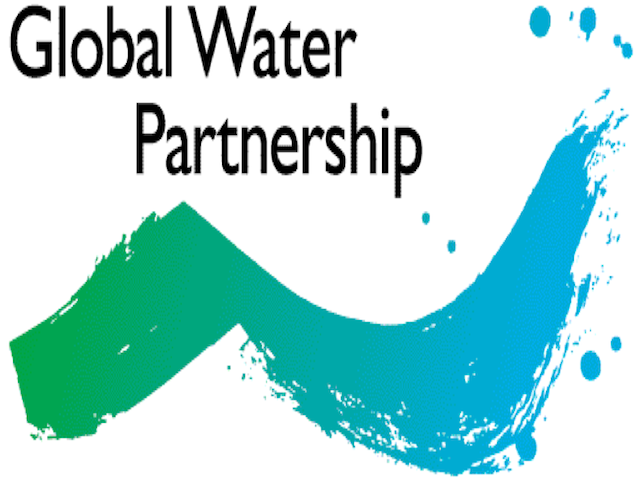Global Water Partnership
www.gwp.org
The Global Water Partnership’s vision is for a water secure world. Its mission is to support the sustainable development and management of water resources at all levels.
GWP was founded in 1996 by the World Bank, the United Nations Development Programme (UNDP), and the Swedish International Development Cooperation Agency (SIDA) to foster integrated water resource management (IWRM).
IWRM is the coordinated development and management of water, land and related resources in order to maximise economic and social welfare without compromising the sustainability of ecosystems and the environment.
The network is open to all organisations involved in water resources management: developed and developing country government institutions, agencies of the United Nations, bi- and multi-lateral development banks, professional associations, research institutions, non-governmental organisations, and the private sector.
The network is supported financially by Canada, Denmark, the European Commission, Finland, France, Germany, the Netherlands, Norway, Sweden, Spain, Switzerland, the United Kingdom and the United States.
The approach
As GWP prepared its global strategy for 2009-2013, it took a step back to explain how water and global issues interrelate: how global issues relate to water and how water relates to just about every single development issue. Below is the introduction to GWP’s 2009-2013 global strategy, aptly starting with the Global Context.
Water is a prerequisite for life.
Water is a finite and vulnerable resource.
Water also destroys.
Water is crucial for food security and human well being.
Water is tied to global challenges.
Water is a prerequisite for life.
Good water management promotes economic and social progress. However, poor water management hinders development and people suffer. Prosperity in many countries stems from significant investments in water infrastructure, water institutions and good water resource management. Water underpins almost all economic activity from food production—the mainstay of many economies and critical to people’s livelihoods—to manufacturing, energy production and transport. Achievement of all the Millennium Development Goals depends to a large extent on water.
Water is a finite and vulnerable resource.
Current global population growth rates mean that more and more people and economic sectors are competing for water. Increasing scarcity, stress, pollution and other threats will aggravate this competition. By 2025, three billion people will live in water-stressed countries. Many of these countries lack the infrastructure and management systems to store, deliver and use water efficiently. Countries will continue to face tough decisions on water allocation—how to balance competing demands from households, farmers, industry, ecosystems and hydro-power—to optimise the use of this finite resource. Better governance will continue to be a key aspect of sustainable water management.
Water also destroys.
Many countries regularly suffer droughts, floods, hurricanes and other disasters that destroy lives, drain economies and hinder growth. Furthermore, although many parts of the world enjoy economic growth and better well-being, with these gains come greater demands for water and more pollution.
Water is crucial for food security and human well being.
The growing global demand for food and bio-energy, and the recent rises in food prices, slow down progress in reducing poverty, but increase demand for water from the agriculture and energy sectors. Lack of access by the poor to adequate, safe and reliable supplies of water, and safe sanitation limits their options to improve their livelihoods. In countries that lack good water management, it is usually the poor who suffer most.
Water is tied to global challenges.
Climate change is one of the most formidable longterm challenges faced by the global community. And it is the poorest people on the planet who will feel its effects most deeply. Climate change will affect the water cycle, sea level and rainfall variability, and thus crop production and the frequency and scale of floods and droughts. Water is not immune to other external and immediate challenges, such as the recent economic and financial crisis and the volatility in the price of food and other commodities, and their impact on water is complex and needs to be better understood. Urbanisation and demographic changes, environmental degradation and a lack of essential services also place huge demands on water resource managers. Without prompt action, such challenges may trigger conflicts between communities, water users and between nations.
Contact:
GWP Global Secretariat
Drottninggatan 33
SE-111 51 Stockholm
Sweden
Phone: +46 8 1213 86 00
Fax: +46 8 1213 86 04
Email: gwp@gwp.org







